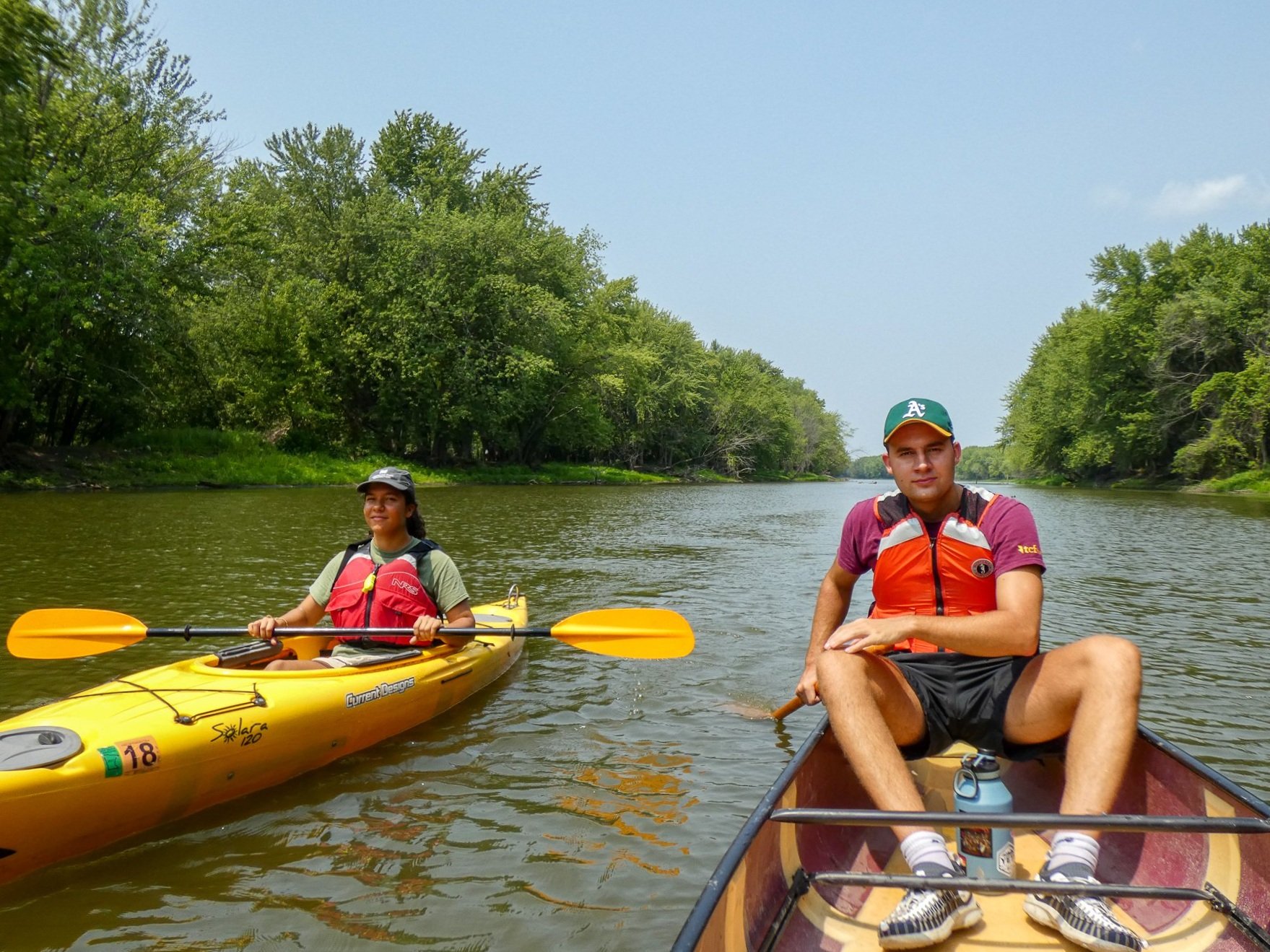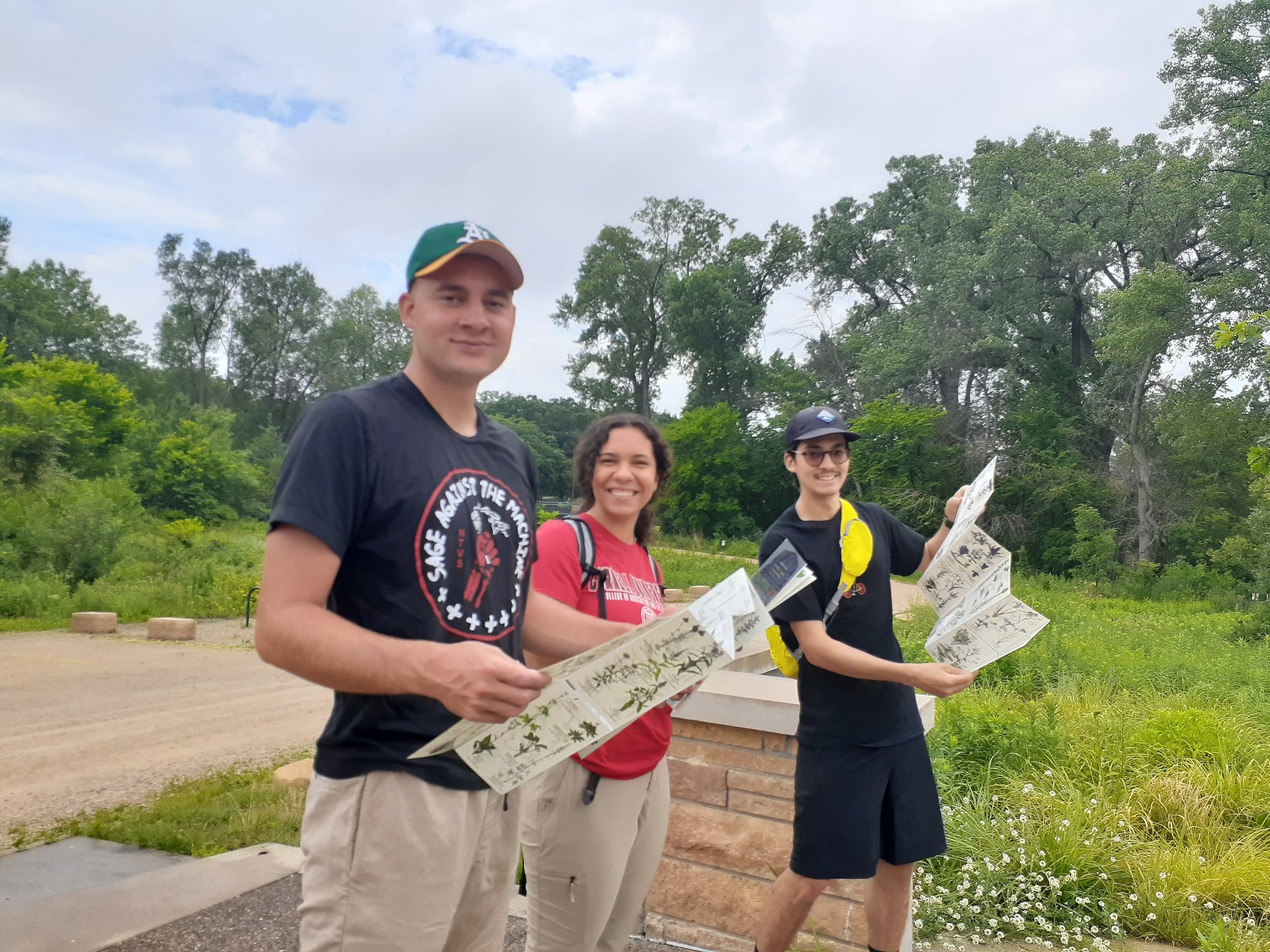Reflections on a Mississippi River Fellowship
By Deacon DeBoer, Mississippi River Fellow 2021, Mississippi Park Connection
In what seemed as quick as a cottonwood seed floating to the ground, the Mississippi River Fellowship provided countless educational experiences on topics once foreign to me prior to this summer. Mississippi Park Connection’s fellowship went above and beyond my expectations. It supported my learning and encouraged me to freely explore my interests pertaining to the river and Unci Maka (Grandmother Earth). I had many supportive and constructive conversations with relatives and coworkers in relation to both my future and the future of this park. These communicative relationships are vital to building reciprocal relationships with the land.
This summer I learned by rotating through many positions within the National Park Service in partnership with Mississippi Park Connection. One of my favorites was conducting animal surveys with MNRRA biotechs, varying from monarch butterfly monitoring to bats, beavers, and bees! All these critters tremendously help our ecosystem. I am so thankful for the experience to work up close with them. I loved seeing monarchs on top of Itoptasapa thapezhuta (milkweed).
I applied to this fellowship because I look to the Mississippi River as a relative and it should be treated as such. It is my home away from home here in Bde Ota (Minneapolis). I spent much of my childhood near the Cetan Wakpa (Hawk Creek) and Mni Sota Wakpa (Minnesota River) in Pezihutazizi Kapi near Granite Falls. Those waters connect me to Bde Ota and Imniza Ska (Saint Paul). The fellowship was an opportunity for me to build relationalities along the Haha Wakpa (Mississippi River) and create safe spaces for relatives to use.
I built these relationalities by hosting a Paddling While BIPOC With Truth Telling event pertaining to Mni Sota Makoce (land where the waters reflect the sky). When I learned that I would design a capstone project at the end of my fellowship, it didn’t take more than a minute to conjure up what I wanted to do. Our route took us around Bdote (the confluence of the Minnesota and Mississippi rivers) and through the back channel of Wita Tanka (Pike Island). The event was beautiful. We were gifted serene weather with the dew of rain, which we all have been missing lately. We chatted amongst ourselves as relatives and built knowledges as we decolonized our narratives. The core of this paddle was building a reciprocal relationship with Unci Maka and the environment, and letting the land hear our language of decolonization.
I still find language to be an afterthought in peoples’ minds pertaining to a place’s spirituality and the weight a name holds in describing these places. Going forward, our society has a lot of work to do in working toward decolonization. Many organizations are entirely systemically colonial. Recognizing this as an organization and amplifying BIPOC voices within can aid in decolonization efforts.






